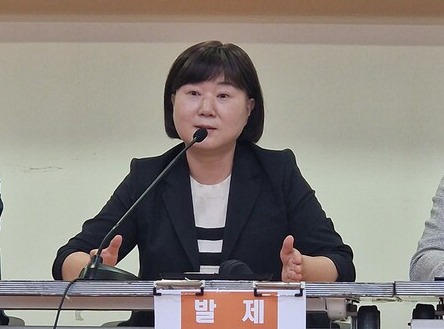The health authorities should establish a formal process to gather patient organizations’ opinions on deciding whether to cover high-priced drugs with health insurance, a patient group head said Wednesday.
Lee Eun-young, a co-representative of the Korea Leukemia Patients Association, remarked during a debate on “How to Improve the Treatment Environment for Patients with Blood Diseases in Korea” at the National Assembly.
Rep. Lee Ju-young of the Reform Party hosted the event, and the Korean Society of Hematology and The Korean Doctors’ Weekly co-organized it.

“The standard for blood cancer treatment in Korea is inadequate compared to global standards, causing patients to miss the right time for treatment,” Lee said. “Even though there are first-line drugs, they are not used properly here.”
As examples where the reimbursement standards for leukemia and blood cancer drugs are out of step with clinical fields, Lee cited Xospata tablet (gilteritinib), Rydapt soft capsules (midostaurin), and Mylotarq (gemtuzumab ozogamicin), which are used to treat acute myeloid leukemia (AML), and Polivy (polatuzumab vedotin) and Columvi (glofitamab), which is used to treat diffuse large B-cell lymphoma (DLBCL).
“Patients and their caregivers are the direct beneficiaries of treatment,” Lee said. “Just as the experts’ opinions are naturally required, there should be a formal process to listen to the opinions of patients and patient organizations. A formal patient participation system that can collect the opinions of patients and patient organizations needs to be introduced in Korea.”
She presented a report on “Comparative Study of Domestic and Foreign Benefit Management Systems for High-Cost Drugs” published by an in-house research body of the Health Insurance Review and Assessment Service (HIRA), explaining overseas cases where there are procedures for collecting opinions from patient organizations.
According to the report, the U.K., France, Germany, Canada, Australia, and Taiwan have procedures to collect the opinions of patient organizations in registering high-cost drugs with the reimbursement list but Korea and Italy do not.
“In Korea, there is no formal process to collect the opinions of patient organizations in the drug reimbursement process,” Lee reiterated. “The U.K. is the best example, and France, Germany, and Taiwan also collect patient opinions in the reimbursement process.”

